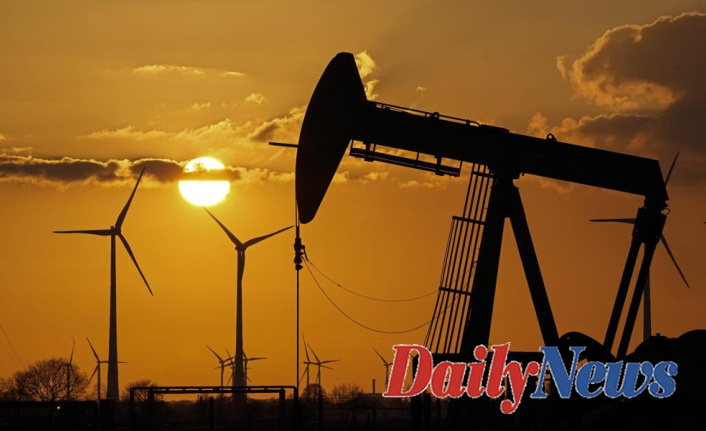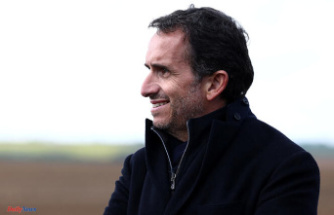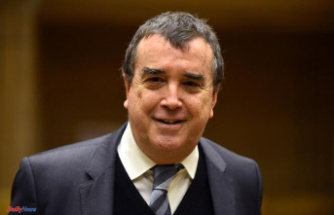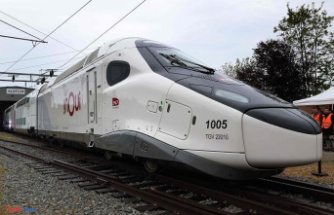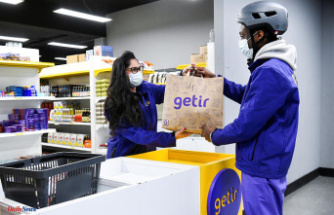These are new signs of how Russia’s war in Ukraine has heightened tensions over securing Europe's energy supply.
Poland has been the leader in the European Union in cutting down Russian fossil fuels. Although the 27-nation bloc declined to sanction energy, it relies on Moscow to provide the fuel for its cars, electricity, and heating, it has made proposals to get rid of those supplies.
At a news conference, Mateusz Morawiecki, Polish Prime Minister, stated that "we are presenting the most radical plan for Europe to depart from Russian oil by December 31, 2012".
This comes just days after Poland announced it would ban Russian coal imports. It is expected to happen by May. Morawiecki said that Poland would take steps to be "independent" from Russian coal imports and called on other European Union members to "walk away". He claims that Russia's oil-and-gas subsidies are fueling its war machine.
Some Europeans are calling for an immediate ban on all Russian oil and gas imports. However, the EU plans reduce Russian gas imports by at least two-thirds by year's end and eliminate them by 2030. In the meantime, jittery energy markets have driven up already high natural gas and oil prices for Europeans as well as others around the world.
As a long-term solution, the EU is looking to investments to renewable energy. However, it is also trying to find alternative sources of fuels. This includes a new deal with the U.S. to get more liquefied natural gases (or LNG) that arrives by ship.
Poland is expanding its LNG terminal in order to receive LNG deliveries from Qatar, the U.S. and Norway, as well as other exporters. The opening of a new Baltic pipeline to bring gas from Norway is planned for the end. It has also been working to reduce dependence on Russian oil by signing contracts with Saudi Arabia and the U.S., and is currently considering imports from Kazakhstan.
Germany is the EU's largest economy and most dependent on Russia's natural resources. It has made deals with several LNG suppliers. The LNG is then shipped to European countries, and then pumped into Germany. Officials claim they plan to eliminate the use of Russian oil, coal and natural gas by mid-2024.
However, it has not ended the fear about what the future holds. Germany issued an alert about gas supplies and asked households and companies to save. There are concerns that Russia could stop gas deliveries if it is not paid in rubles.
The demand from the West has been rejected by these nations, who claim it would weaken sanctions against war. France called Wednesday for all those who could conserve energy, including gas and electricity, with a particular focus on public facilities and businesses.
Robert Habeck, Economy Minister, stated to reporters in Berlin that there have been many comments from Russia that payments in rubles (payments) won't occur.
Dmitry Peskov, a Kremlin spokesperson, said that switching Russian gas payments to rubles will be a slow process. He also noted that there is always a gap in gas supplies and payments. The government will soon release details.
Habeck stated that these rules would be in effect on Thursday.
The early warning was called precautionary because Russia had not yet fulfilled its obligations. Habeck stated that this is the first level and involves the establishment of a crisis team to increase monitoring of gas supply.
Germany's gas storages hold approximately 25% of their capacity.
He said that the question of how long gas will last depends on many factors, such as consumption and weather. "If there is a lot heating, the storage facilities may be empty."
He said that Germany was prepared to face a sudden cut in Russian gas supplies, but warned of "considerable consequences" and asked consumers to reduce their consumption to prevent such a crisis.
Habeck stated, "We are in an environment where, I must say this clearly," every kilowatt-hour of energy saved helps."
Companies in the gas industry would need to take measures to regulate their supply if they are given the second warning level. Habeck stated that the third level would require full state intervention in order to ensure that gas is delivered to those most in need, such as hospitals and private homes.
He said, "We are not there and don't want go there."
Italy issued a pre-alert about the dangers to its natural gas supplies days after the conflict broke out. This was due to Italy's dependence on Russia. Roberto Cingolani, energy transition minister, said that the warning was intended to inform users about the "uncertainties associated with the conflict" while also confirming that supplies were sufficient to meet demand. It does not ask people to save.
According to France's Regulatory Energy Commission head, the gas storage units are "well-filled" but they still need to be refilled.
Jean Francois Carenco stated to the BFM news broadcaster, "If we don’t do that there is a danger next winter that consumption demand will be greater than our ability to meet it."
France receives about 70% of its electricity through nuclear plants. During winter peak demand, France must import electricity from countries that have gas-powered plants.

